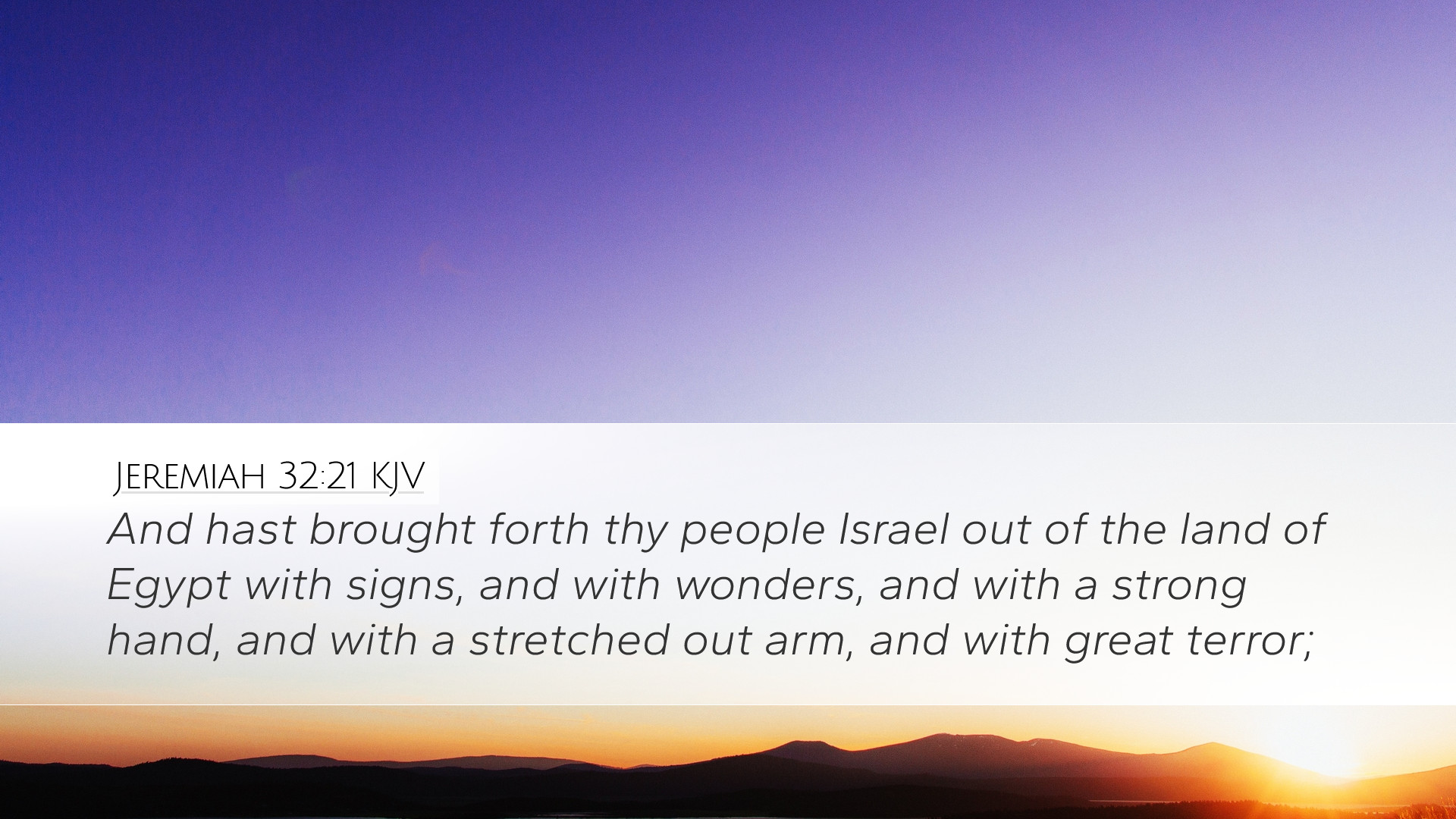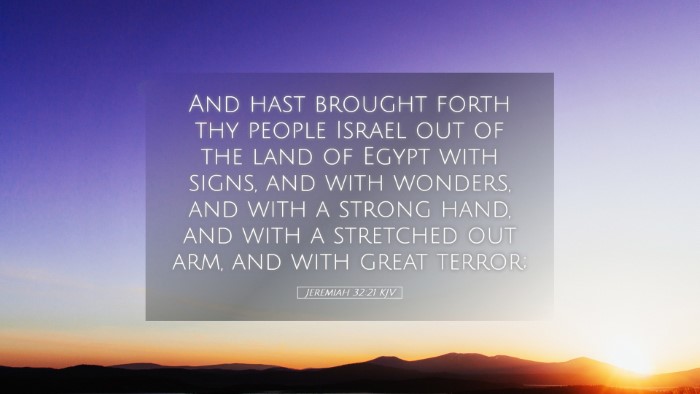Commentary on Jeremiah 32:21
Jeremiah 32:21 reads: "And hast brought forth thy people Israel out of the land of Egypt with signs, and with wonders, and with a strong hand, and with a stretched out arm, and with great terror;" This verse is a pivotal part of the narrative that underscores God's faithfulness and power in delivering Israel from bondage. Below is a summarized commentary drawing insights from public domain resources by Matthew Henry, Albert Barnes, and Adam Clarke.
Overview of the Context
This verse is situated within a larger narrative where God reassures Jeremiah of His sovereignty amidst impending judgment against Jerusalem. Jeremiah, known as the 'weeping prophet', is often a voice of lament and warning. This chapter recounts the prophetic acts and messages leading up to the Babylonian exile as well as the promise of restoration.
Insights from Commentators
Significance of God's Acts
Matthew Henry emphasizes that the mention of "signs" and "wonders" serves as a reminder of God's miraculous interventions in history. The term "signs" refers to the acts that testify of God's power, while "wonders" evokes the sense of awe that accompanies His deeds. These acts not only signify God's authority but also affirm His covenant with the people of Israel.
The Historical Context of Deliverance
Albert Barnes elaborates on the historical context of this deliverance from Egypt. He highlights that God's actions were not merely for Israel's benefit but served to testify to the world about His supreme power and sovereignty. The "strong hand" and "stretched out arm" articulate God’s mightiness in deliverance, symbolizing His ability to save His people from oppression and initiate their journey toward the Promised Land.
Theological Implications
Adam Clarke points to the theological significance of God’s liberating actions. In his commentary, he interprets the phrase "with great terror" as an indication of the reverence needed when considering God's overwhelming presence. The act of deliverance was not simply physical; it held profound spiritual implications. It showcased the nature of God as both a deliverer and a judge, who in His great mercy also instigates fear due to His holiness and righteousness.
Reflections on the Nature of God
- Faithfulness: This verse encapsulates God's unwavering faithfulness to His promises, serving as a reminder for believers that God acts in history to fulfill His covenant.
- Power: The imagery of God bringing forth His people with a "strong hand" illustrates divine power and capability beyond human understanding, encouraging faith in difficult times.
- Mercy and Judgement: God’s dual role as a merciful savior and just judge is succinctly communicated, prompting reflection on both sides of His holiness.
Application for Believers
This verse challenges contemporary believers to remember their own spiritual deliverance and the greater redemptive narrative encapsulated in Christ’s work. The historical act of deliverance from Egypt parallels the spiritual deliverance believers experience through faith in Christ. It invites believers to trust in God's power in their own lives and to acknowledge His past faithfulness as a foundation for future hope.
Conclusion
Jeremiah 32:21 stands as a testimony of God's active involvement in history and His covenant faithfulness to His people. Through the insights from Matthew Henry, Albert Barnes, and Adam Clarke, we are reminded of the mighty acts of God and their implications for faith and practice today. For pastors, students, and theologians, this verse warrants deep reflection on the nature of divine deliverance and encourages the assurance that God is indeed in control, both in historical contexts and personal lives.


